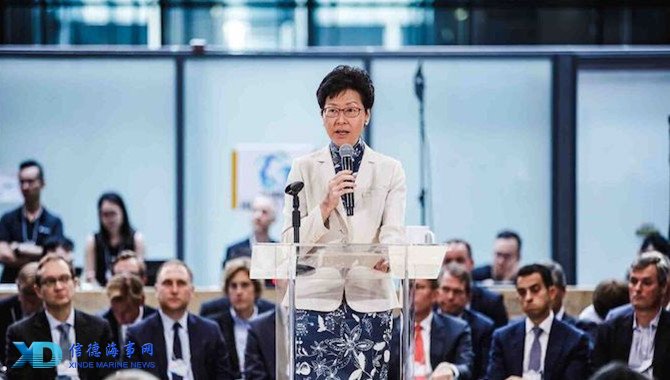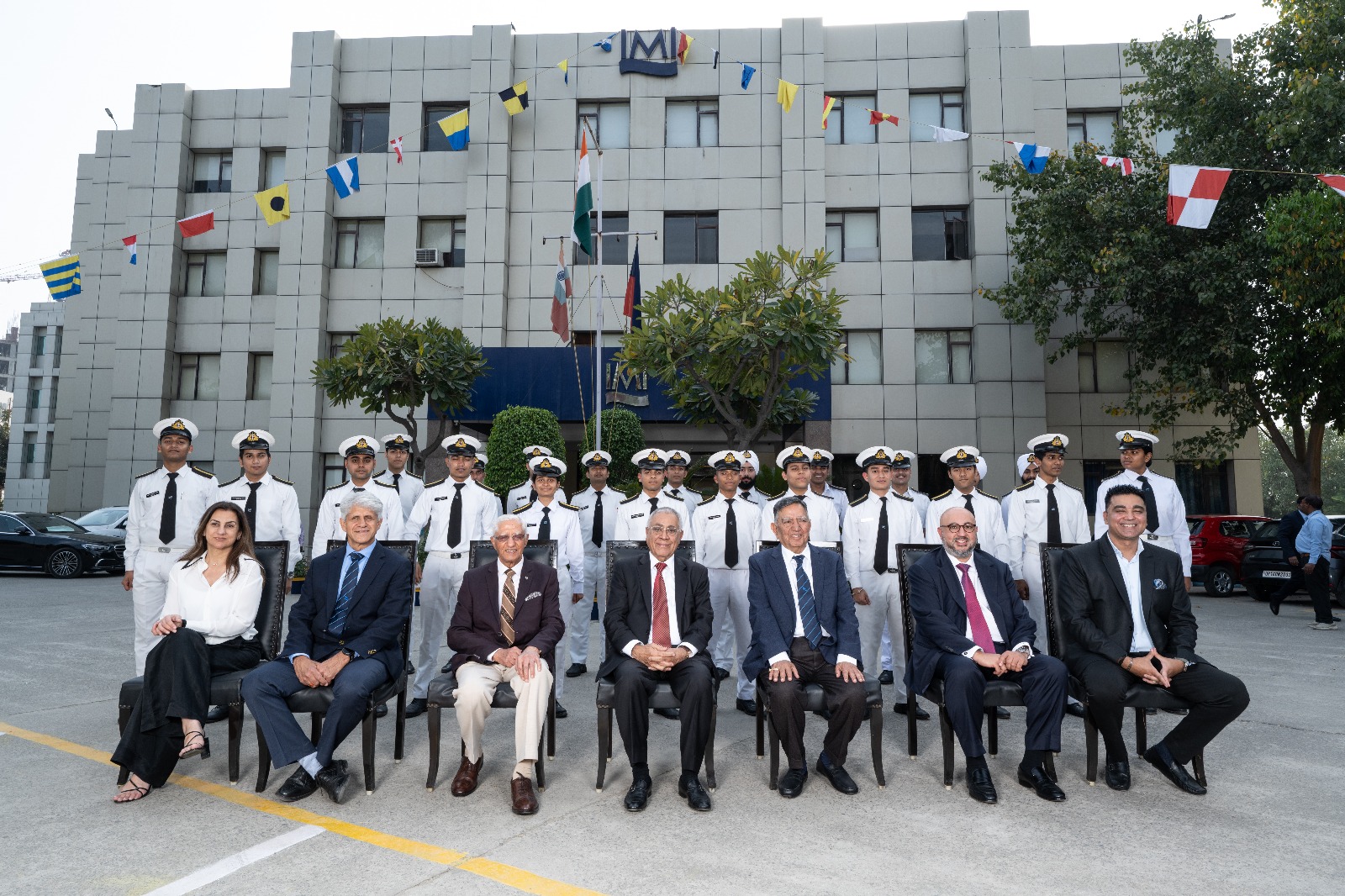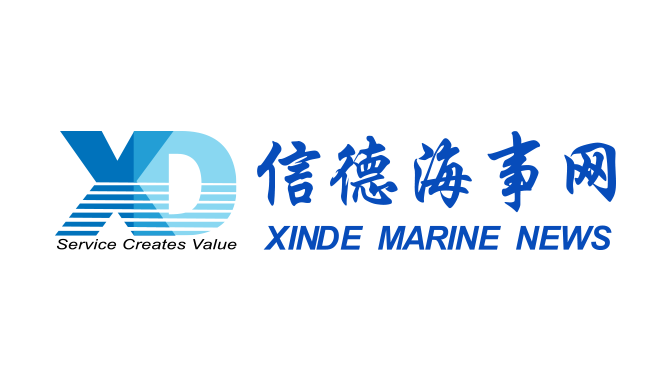
Hong Kong’s chief executive, Carrie Lam injected a level of anticipation in an audience of global maritime leaders yesterday (3 October) ahead of her policy address next week. In a keynote address to the Global Maritime Forum (convened at the Kai Tak Cruise Terminal i Hong Kong) Ms Lam lamented the timing of the Forum, leaving her unable to reveal what measures if any the Government would be offering to boost the sector.
Before an extraordinary gathering of the global maritime elite including secretary-general of the International Maritime Organisation, Kitack Lim and the secretary-general of UNCTAD, Dr Mukhisa Kituyi, Ms Lam expressed her delight that the Forum had chosen Hong Kong for its first gathering outside of Denmark. Singapore is said to be hosting the event next year, followed by London in 2020.
For those looking for clues as on policy direction some might have been encouraged by Ms Lam’s reference to the establishment earlier this year of the “Chief Executive’s Council of Advisers on Innovation and Strategic Development, and the fact that maritime and aviation had been a subject of its deliberations in September.
On Hong Kong’s current standing as a maritime centre Ms Lam conceded that:
“Despite Hong Kong’s clear strengths, maintaining the competitiveness of our maritime sector remains a formidable challenge. Slightly more than a decade ago, Hong Kong Port was ranked first worldwide in total throughput handled. Last year, it finished fifth, a slide attributable to fierce competition from regional ports coupled with internal constraints in land and manpower supply and international economic uncertainties.”
She did however highlight national developments and initiatives that could assist Hong Kong in regaining its rightful place:
“Together with the Belt and Road, the Guangdong-Hong Kong-Macao Greater Bay Area has the greatest potential. The development brings together Hong Kong, Macao and nine prosperous cities in southern China. With a population of nearly 70m and an aggregate GDP of about US$1.5trn, the Bay Area is a huge market on its own. Further, the Bay Area will take full advantage of each city’s unique strengths, consolidating resources and maximising each other’s business potential.”
Reflecting a shift in focus first taken up by Hong Kong’s previous administration, Ms Lam commented: “While Hong Kong faces fierce competition in cargo trade, we remain highly competitive in professional services. More than 800 companies, from ship finance and leasing, to insurance, ship management, legal and arbitration services, are profitably engaged in the international maritime business here. Many of the world’s leading shipbrokers keep offices in Hong Kong. So, too, do nearly 90 authorised ship insurers, some 35 of which are foreign insurers.
“The Belt and Road Initiative and the Bay Area will create surging needs for legal and dispute-resolution expertise as well as other professional services, including investment and risk assessment, research, financing, insurance and accounting,” she added.
“We have all the professionals here in Hong Kong, working with clients from the Mainland and from all over the world. They give Hong Kong our clear competitive edge, providing high value-added services for Mainland companies looking to go out to the world and for a world of companies looking to the booming markets of the Mainland and throughout Asia. “
To ensure that the world is aware of our business prowess, particularly when it comes to the maritime industry, a dedicated maritime desk has already been set up at Invest Hong Kong to promote Hong Kong’s wide-ranging maritime expertise and value, communicating those advantages to overseas and Mainland maritime cities.”
Earlier this year the Financial Services Development Council put forward a raft of policy recommendations to boost Hong Kong’s maritime services including tax concessions, which the maritime community may be realised during next week’s policy address.

 Dr. Harry S. Banga and Mr. Angad Banga of The Carav
Dr. Harry S. Banga and Mr. Angad Banga of The Carav  Liberian Registry Welcomes Kyle Hurst as Senior Vic
Liberian Registry Welcomes Kyle Hurst as Senior Vic  KATALIST: Accelerating Green Shipping through Innov
KATALIST: Accelerating Green Shipping through Innov  Revealing the risks: digital solutions for complian
Revealing the risks: digital solutions for complian  Beibu Gulf Port Chairman Zhou Shaobo Passes Away at
Beibu Gulf Port Chairman Zhou Shaobo Passes Away at  Exclusive Interview with Norsepower CEO: Bringing S
Exclusive Interview with Norsepower CEO: Bringing S